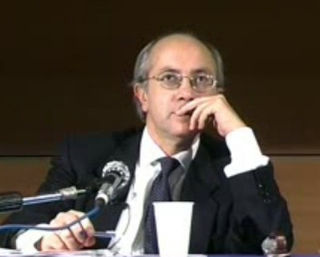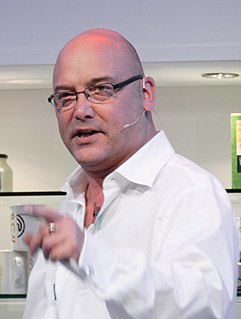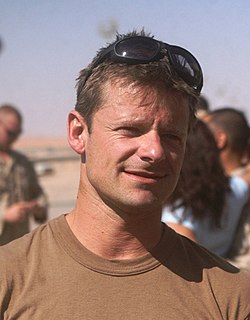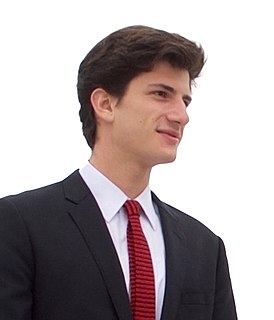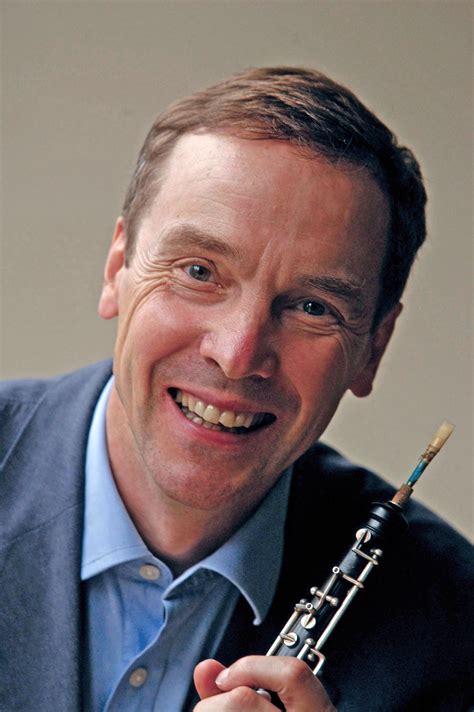Top 1200 Religious History Quotes & Sayings - Page 11
Explore popular Religious History quotes.
Last updated on December 24, 2024.
I believe we can, and must, strike a balance between our shared American values of religious liberty and freedom from discrimination. My concerns lie with the possible consequences of politically-driven legislation which claims to promote religious liberty but instead rolls back the legal protections held by LGBT Americans.
Menaced by collectivist trends, we must seek revival of our strength in the spiritual foundations which are the bedrock of our republic. Democracy is the outgrowth of the religious conviction of the sacredness of every human life. On the religious side, its highest embodiment is the Bible; on the political side, the Constitution.
Bill Maher is right to condemn religious practices that violate fundamental human rights. Religious communities must do more to counter extremist interpretations of their faith. But failing to recognize that religion is embedded in culture — and making a blanket judgment about the world’s second largest religion — is simply bigotry.
What is history? Any thoughts, Webster?' 'History is the lies of the victors,' I replied, a little too quickly. 'Yes, I was rather afraid you'd say that. Well, as long as you remember that it is also the self-delusions of the defeated. ... 'Finn?' '"History is that certainty produced at the point where the imperfections of memory meet the inadequacies of documentation." (quoting Patrick Lagrange)
No doubt Carlyle has a propensity to exaggerate the heroic in history, that is, he creates you an ideal hero rather than another thing.... Yet what were history if he did not exaggerate it? How comes it that history never has to wait for facts, but for a man to write it? The ages may go on forgetting the facts never so long, he can remember two for every one forgotten. The musty records of history, like the catacombs, contain the perishable remains, but only in the breast of genius are embalmed the souls of heroes.
[T]he central problem of government is a religious one; and anyone who assumes that he can form his political beliefs without consulting his ethics, which have their basis in religious conviction, is deceiving himself either about the true nature of government or his moral responsibility for his actions
The fact is that philosophy has been a decisive source of inspiration in all the great crises that Europe has faced. It has been so in the time that preceded the fall of the Roman Empire, when Augustine of Hippo delineated the features of a new spiritual civilization; in the age of religious wars, when Descartes and Hobbes established the principles of modern science and politics; and at the turn of the French Revolution, interpreted by Kant and Hegel as an event destined to change the history of the world.
Actions which are conscious expressions of the turn-on, tune-in, drop-out rhythm are religious.The wise person devotes his life exclusively to the religious search - for therein is found the only ecstasy, the only meaning. Anything else is a competitive quarrel over (or Hollywood-love sharing of) studio props.
Biographical history, as taught in our public schools, is still largely a history of boneheads; ridiculous kings and queens, paranoid political leaders, compulsive voyagers, ignorant general the flotsam and jetsam of historical currents. The men who radically altered history, the great scientists and mathematicians, are seldom mentioned, if at all.
I do believe that people of all religions have a right to build edifices or structures or places of religious worship or study where the community allows them to do it under zoning laws and that sort of thing, and that we don't want to turn an act of hate against us by extremists into an act of intolerance for people of religious faith.
Does religious conviction provide a powerful reason for killing? Undeniably it often does. It also often provides the sole compelling reason for refusing to kill, or for being merciful, or for seeking peace; only the profoundest ignorance of history could prevent one from recognizing this. For the truth is that religion and irreligion are cultural variables, but killing is a human constant.
Religious-liberty protections are one way of achieving civil peace even amid disagreement. The United States is a pluralistic society. To protect that pluralism and the rights of all Americans, of whatever faith they may practice, religious-liberty laws are good policy. Liberals committed to tolerance should embrace them.
The great decisions of government cannot be dictated by the concerns of religious factions. We have succeeded for 205 years in keeping the affairs of state separate from the uncompromising idealism of religious groups and we mustn't stop now. To retreat from that separation would violate the principles of conservatism and the values upon which the framers built this democratic republic.
If companies can refuse to provide coverage for women, what other objections to the Affordable Care Act will we see based on 'religious grounds'? For that matter, will 'religious freedom' be used as an excuse to discriminate against other minorities and disenfranchised groups across the board? Where will it end?
The religious stories, the religious truths, the spiritual principles - obviously, they don't change. But as you get older and you experience more, you recognize the applicability, the profundity, and the fundamental truths of spiritual principles in ways that you couldn't when you simply were living a less dimensional life.
I believe that a religious conversion is the only way to stimulate the peoples of the industrialized nations to be willing to make sacrifices for the sake of esho funi (the oneness of self and environment). ... I wish the entire world would accept as an item of religious faith the concept of esho funi and its moral obligations.
We know of no spectacle more ridiculous—or more contemptible—than that of the religious reactionaries who dare to re-write the history of our republic. Or who try to do so. Is it possible that, in their vanity and stupidity, they suppose that they can erase the name of Thomas Jefferson and replace it with the name of some faith-based mediocrity whose name is already obscure? If so, we cheerfully resolve to mock them, and to give them the lie in their teeth.
Total experiences, of which there are many kinds, tend again and again to be apprehended only as revivals or translations of the religious imagination. To try to make a fresh way of talking at the most serious, ardent, and enthusiastic level, heading off the religious encapsulation, is one of the primary intellectual tasks of future thought.
Kennedy believed in religious liberty and the separation of church and state. He did not believe in the right of elected officials to impose their religious views on others. He was the first Catholic ever elected president, and he spent much of the 1960 campaign defending his religion and assuring voters he would not take orders from the Vatican.
In religious and in secular affairs, the more fervent beliefs attract followers. If you are a moderate in any respect - if you're a moderate on abortion, if you're a moderate on gun control, or if you're a moderate in your religious faith - it doesn't evolve into a crusade where you're either right or wrong, good or bad, with us or against us.
Reggae, oh man. It's the ultimate music. The positivity. The musicality. The whole cultural expressionism of it. The danceability. Just the cool factor. The melody factor. Some of it comes from a religious place. If there were a competition of who makes the best religious music, it would definitely be the Rastafarian reggae.
The Conspiracy Theory of Society... [is] a typical result of the secularization of a religious superstition. The belief in the Homeric gods whose conspiracies explain the history of the Trojan War is gone. The gods are abandoned. But their place is filled by powerful men or groups - sinister pressure groups whose wickedness is responsible for all the evils we suffer from - such as the Learned Elders of Zion, or the monopolists, or the capitalists, or the imperialists.
Most religious people in America fully embrace science. So the argument that religion has some issue with science applies to a small fraction of those who declare that they are religious. They just happen to be a very vocal fraction, so you got the impression that there are more of them than there actually is.
A religious belief is not a statement about Reality, but a hint, a clue about something that is a mystery, beyond the grasp of human thought. In short, a religious belief is only a finger pointing to the moon. Some religious people never get beyond the study of the finger. Others are engaged in sucking it. Others yet use the finger to gouge their eyes out. These are the bigots whom religion has made blind. Rare indeed is the religionist who is sufficiently detached from the finger to see what it is indicating - these are those who, having gone beyond belief, are taken for blasphemers.
The real invasion of South Vietnam which was directed largely against the rural society began directly in 1962 after many years of working through mercenaries and client groups. And that fact simply does not exist in official American history. There is no such event in American history as the attack on South Vietnam. That's gone. Of course, It is a part of real history. But it's not a part of official history.
To be prophets, in particular, by demonstrating how Jesus lived on this earth, and to proclaim how the kingdom of God will be in its perfection. A religious must never give up prophesising Let us think about what so many great saints, monks and religious men and women have done, from St Anthony the Abbot onward. Being prophets may sometimes involve making ruido [Spanish for noise]. I do not know how to put it Prophecy makes noise, uproar, some say 'a mess.' But in reality, the charism of religious people is like yeast: prophecy announces the spirit of the Gospel.
I don't know if I'm the most religious guy, but I think I'm a spiritual man, and these are the things I think about a lot. In terms of the film, I think 'The Grey' is very much a non-denominational kind of film. I don't think it's something that relies on a particular religious bent to tell the story.
The mystic must be steadily told,-All that you say is just as true without the tedious use of that symbol as with it. Let us have a little algebra, instead of this trite rhetoric,-universal signs, instead of these village symbols,-and we shall both be gainers. The history of hierarchies seems to show that all religious error consisted in making the symbol too stark and solid, and was at last nothing but an excess of the organ of language.
In matters of religion, I have considered that its free exercise is placed by the Constitution independent of the powers of the general government. I have therefore undertaken on no occasion to prescribe the religious exercises suited to it; but have left them as the Constitution found them, under the direction and discipline of State or Church authorities acknowledged by the several religious societies.
I have no religious belief myself, but I don't think we should fight about it. In particular, I think that we should not rubbish moderate religious leaders like the Archbishop of Canterbury because I think we all agree that extreme fundamentalism is a threat, and we need all the allies we can muster against it.
It was, of course, a lie what you read about my religious convictions, a lie which is being systematically repeated. I do not believe in a personal God and I have never denied this but have expressed it clearly. If something is in me which can be called religious then it is the unbounded admiration for the structure of the world so far as our science can reveal it.
I believe that God is the source of all the universal, timeless principles. And to Him, I give all the credit and the glory. However, to a person who is not religious, I believe they can live to the highest level of their conscience and develop spiritual intelligence that surpasses most people, including many religious people, who profess but do not practice.
Since Jimmy Carter, religious fundamentalists play a major role in elections. He was the first president who made a point of exhibiting himself as a born again Christian. That sparked a little light in the minds of political campaign managers: Pretend to be a religious fanatic and you can pick up a third of the vote right away. Nobody asked whether Lyndon Johnson went to church every day. Bill Clinton is probably about as religious as I am, meaning zero, but his managers made a point of making sure that every Sunday morning he was in the Baptist church singing hymns.

















